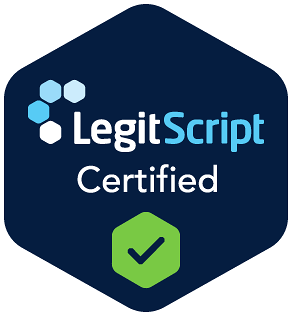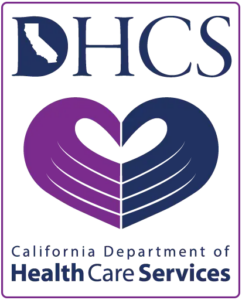
Detoxification is a crucial process for individuals recovering from addiction, helping the body cleanse and heal. While many people focus on the physical and emotional challenges of detox, nutrition is a component often overlooked during this important first step before beginning treatment.
The right foods and nutrients can have a profound impact on how the body responds to the removal of drugs and alcohol. This includes reducing cravings, alleviating withdrawal symptoms, and easing the overall strain detoxification puts on the body. Proper nutrition is not only essential for managing these symptoms but also plays a vital role in promoting long-term recovery.
For individuals undergoing detox from alcohol, following a specific drug and alcohol detox diet is key. The right foods can help ease withdrawal symptoms and manage cravings. It can make the detoxification process more bearable and significantly improve the chances of successful recovery. Our detox center in Huntington Beach, California, specializes in providing a safe environment for people preparing for treatment and recovery.
The Impact of Addiction on Nutritional Health
Addiction doesn’t just impact your brain and behavior—it also takes a toll on your nutritional health. Long-term substance abuse can deplete your body of essential nutrients, leading to malnutrition, a weakened immune system, and other health issues. Many people struggling with addiction often rely on unhealthy foods, like those high in sugar and fat, while missing out on nutrient-rich options.
Substance use disorders (SUDs) can also affect your ability to absorb nutrients properly. For example, chronic alcohol use can damage your liver, making it harder for your body to process vitamins and minerals. This can worsen physical and mental health problems, which in turn makes the detox process more difficult.
That’s why improving nutrition during detox is so important—not just to manage withdrawal symptoms but also to help heal some of the damage caused by the toxins from drugs and alcohol.
The Role of Nutrition During Withdrawal
How a person takes care of their body during recovery can drastically affect how they respond to the detoxification process. Proper diet choices can help alleviate the intensity of alcohol withdrawal symptoms, reduce cravings, and support overall health. Conversely, poor nutrition can exacerbate symptoms, slow down recovery, and increase the risk of relapse.

Withdrawal from substances like alcohol or drugs often leads to symptoms such as anxiety, nausea, fatigue, and headaches. A nutrient-rich diet can alleviate these effects by replenishing lost vitamins and minerals and stabilizing blood sugar levels. Certain foods can help your body cope with both the physical and emotional stress of withdrawal.
Detoxification requires the liver and kidneys to work harder to eliminate toxins. Proper nutrition, including staying hydrated and consuming nutrient-dense foods, supports these vital organs, helping the body cleanse itself more efficiently. Hydration, through water, herbal teas, and fresh juices, is essential for flushing out toxins and preventing dehydration, which can exacerbate withdrawal symptoms.
One of the most challenging aspects of withdrawal is controlling cravings. A balanced drug and alcohol detox diet that includes protein, healthy fats, and complex carbohydrates helps regulate blood sugar, making cravings more manageable and reducing their intensity. These foods can provide long-term stability, aiding in a smoother recovery process.
Drug and Alcohol Detox Diet for Withdrawal Symptoms: The Best Foods To Eat
Proper nutrition plays a crucial role in minimizing the effects of alcohol withdrawal and supporting the recovery process. Here are some of the best foods to eat while detoxing:
Rich in magnesium, which reduces anxiety and promotes liver health, supporting the detox process.
Provide complex carbohydrates that stabilize blood sugar, preventing fatigue, irritability, and cravings.
Crucial for muscle repair and maintaining healthy brain function, which may have been disrupted by alcohol use.
Packed with vitamins and antioxidants, helping to replenish nutrients and support immune health. Bananas are especially good for replacing lost potassium.
Support brain health and mood stability, with omega-3 fatty acids reducing inflammation and boosting cognitive function.
Help replenish lost fluids and keep you hydrated during the detox process. Herbal teas like chamomile also offer soothing benefits for digestion and anxiety.
Rich in probiotics that restore gut health, which can be disrupted by alcohol use.
A natural source of electrolytes that aids hydration and supports fluid balance during detox.
Supports liver function, stimulates detoxification, and provides vitamin C for immune recovery.

The Role of Specific Nutrients in Managing Cravings
When it comes to managing addiction cravings, certain nutrients can be incredibly helpful. Adding these nutrients to a balanced alcohol detox diet can support your recovery journey and help reduce the chances of relapse.
Found in fish, flaxseeds, and walnuts, omega-3 fatty acids have anti-inflammatory benefits and support brain health. They can reduce depression and anxiety—common triggers for cravings—and help regulate dopamine, making it easier to manage cravings.
Magnesium supports over 300 bodily functions, particularly those linked to stress and relaxation. Many individuals recovering from alcohol addiction are magnesium deficient. Including magnesium-rich foods like leafy greens, nuts, and seeds, or taking supplements, can help reduce stress, improve sleep, and ease cravings.
Often called the “sunshine vitamin,” vitamin D is crucial for mood regulation and immune function. Low levels of vitamin D have been linked to depression and anxiety, both of which can trigger cravings. Getting enough vitamin D through sunlight, fortified foods, or supplements can help support your mental health and reduce the chances of cravings.
Zinc plays a vital role in neurotransmitter function and immune health. Many individuals recovering from addiction, especially alcohol dependence, tend to have low levels of zinc. Foods like oysters, beef, and pumpkin seeds can help restore zinc levels, balancing neurotransmitters and supporting your body’s ability to manage stress and reduce cravings.
The Gut-Brain Connection: How Gut Health Influences Cravings
Your gut, often called the “second brain,” influences cravings through its bacteria, which regulate mood and behavior. Disrupting this balance, known as dysbiosis, can intensify cravings and increase the risk of relapse during recovery.
Probiotics and Prebiotics
Probiotics are the beneficial bacteria that support gut health, while prebiotics are the fibers that feed these helpful microbes. A diet rich in probiotics, found in foods like yogurt, kefir, and fermented foods, can help promote a healthy gut microbiome. Along with this, prebiotics from foods such as garlic, onions, and bananas nourish the good bacteria and help them thrive. Together, these two components support mood regulation, improve gut health, and help reduce cravings, which is especially important during recovery.
Fiber
Fiber plays a vital role in maintaining a healthy gut. Foods high in fiber, such as fruits, vegetables, and whole grains, aid digestion and help maintain a healthy balance of gut bacteria. This balance contributes to improved mood, less stress, and reduced cravings, making fiber a key part of a recovery-focused diet.
Practical Tips for Incorporating Nutrition into Addiction Recovery
To support your recovery, incorporating the right nutrition can make a significant difference in managing symptoms and promoting healing. Here are some easy, actionable tips to support your detox process through diet:

Seek treatment programs that adopt a holistic approach to recovery. While detox focuses on immediate physical symptoms, our holistic rehab center in Huntington Beach, CA, offers a well-rounded treatment plan that addresses nutritional and psychological needs to support long-term healing.
Incorporate meals with a balance of protein, healthy fats, and complex carbohydrates to support muscle repair, brain health, and energy levels. This can also help stabilize blood sugar and reduce mood swings during recovery.
Reducing sugar and processed foods helps prevent blood sugar fluctuations that can lead to irritability and fatigue. Instead, prioritize whole, nutrient-packed foods that provide your body with the vital nutrients it needs to recover.
Addiction may lead to nutrient deficiencies. It’s important to consult a healthcare professional to see if supplements like B12, Vitamin D, magnesium, and zinc are necessary to support both your physical and mental recovery.
Focus on the enjoyment and nourishment of food, which can help develop a healthier relationship with eating. Mindful eating can also prevent overeating and encourage balanced, intuitive food choices.
Seeking support from loved ones or peers during treatment is crucial. Support groups such as group therapy, family therapy, and other recovery groups, along with a nutrition coach, can help you stay accountable and make sustainable changes that promote healing.

Surf City Detox Can Help Manage Cravings and Withdrawal Symptoms
At Surf City Detox in Huntington Beach, CA, we know recovery is tough, but we’re here to support you. Our detox programs are tailored to manage cravings and withdrawal symptoms, with a strong focus on nutrition as part of the recovery process.
Take the first step towards lasting healing. Reach out today and let us help you reclaim your life with the right care and support.
Dr. Eric Chaghouri is a 2007 graduate from the University of California, Los Angeles, where he earned his B. A. in Biology with Summa Cum Laude honors. While at UCLA, he helped the men’s varsity volleyball team earn a National Championship in 2006. He was named the UCLA Scholar-Athlete of the Year in 2007.
He earned his medical degree from the Keck School of Medicine in 2011. He completed his internship training in 2008 at Cedars-Sinai Medical Center and the remaining three years of residency in general adult psychiatry at the Los Angeles County and University of Southern California Medical Center. He served as the Chief Resident in psychiatric emergency services during his fourth year of residency. He also served as Resident Clinical Instructor and Volunteer Faculty in the Department of Psychiatry at the Keck School of Medicine.
After completing residency, Dr. Chaghouri accepted a fellowship position in forensic psychiatry at the prestigious USC Institute of Psychiatry and Law. His scholarly activities included publishing in Legal Digest and presenting research findings at the Keck School of Medicine annual conference.
Since completing his forensic psychiatry fellowship, he has established a successful and thriving practice in Southern California, focusing on treatment of co-occurring psychiatric and addictive disorders. He has developed a strong clinical team of practitioners who share similar goals and philosophies regarding psychiatric treatment, including providing cutting-edge interventional treatments for psychiatric conditions. He works in an array of capacities with attorneys, courts, and other parties in actual or potential litigation. He also has extensive experience consulting and providing opinions on psychiatric issues for major television networks. Dr. Chaghouri’s interests include addiction medicine, substance use disorders, forensic psychiatry, medical ethics, psychological autopsy, gender wellness, and evidence-based treatment of psychiatric conditions.



